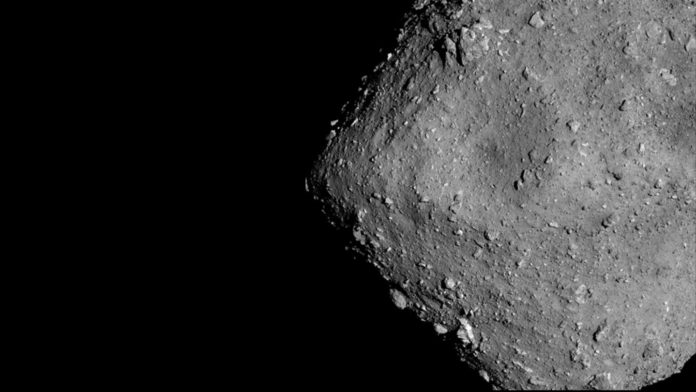On Thursday, July 11 around 10:30 am (0130GMT), Japan’s Hayabusa2 probe made a “perfect” touchdown on a distant asteroid Ryugu. The examination will study the origin and evolution of the solar system as well as materials for life by leveraging the experience acquired from the Hayabusa mission.
It is the second touchdown for the robotic Hayabusa-2 craft, which grabbed rocks from the asteroid in February. The successful touchdown of the probe relieved scientists and made them cheered.
Project manager Yuichi Tsuda reported the news at a jubilant press conference hours after the successful landing was confirmed.

He said, “We’ve collected a part of the solar system‘s history. We have never gathered sub-surface material from a celestial body further away than the Moon. We did it, and we succeeded in a world first.”
Ryugu is a particularly primitive type of asteroid, leftover from the beginning of our Solar System. It might consequently contain signs about the conditions and chemistry of that time – some 4.5 billion years ago.
Hayabusa-2 started its mission to reach Ryugu in 2014, launching from Japan’s spaceport Tanegashima. Hayabusa2’s first touchdown was in February when it landed briefly on Ryugu and fired a bullet into the surface to puff up dust for collection, before blasting back to its holding position.
The second touchdown required special preparations because any problems could mean the probe would lose the precious materials already gathered during its first landing.
The touchdown is the last major part of Hayabusa2’s mission, and when the probe returns to Earth next year to drop off its samples, scientists hope to learn more about the history of the solar system and even the origin of life on Earth.

